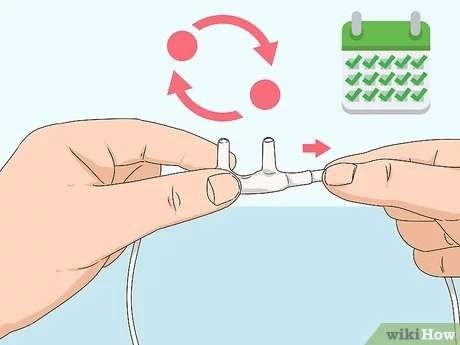A nurse is monitoring a client who has bipolar disorder and is exhibiting manifestations of mania.
Which of the following findings should the nurse expect? (Select all that apply.).
Anhedonia.
Distractibility.
Grandiose thinking.
Overeating.
Flight of ideas.
Correct Answer : B,C,E
Correct Answers: Distractibility. Grandiose thinking. Flight of ideas.
These are the common symptoms of mania in bipolar disorder.
Some possible explanations for the other choices are:
- Choice A is wrong because anhedonia, which means loss of interest or pleasure in activities, is a symptom of depression, not mania.
- Choice D is wrong because overeating is not a specific symptom of mania, although some people with bipolar disorder may have changes in appetite or weight during mood episodes.
Nursing Test Bank
Naxlex Comprehensive Predictor Exams
Related Questions
Correct Answer is C
Explanation
Verapamil is a calcium channel blocker that can lower the heart rate and blood pressure. A normal pulse rate for adults is between 60 and 100 beats per minute. A pulse rate of 48/min is too low and indicates bradycardia, which can cause dizziness, fainting, or cardiac arrest. Verapamil should not be given to patients with bradycardia or heart block.
Choice A is wrong because blood pressure 170/82 mm Hg is high and verapamil can help lower it. A normal blood pressure for adults is less than 120/80 mm Hg.
Choice B is wrong because respiratory rate 18/min is normal and verapamil does not affect it. A normal respiratory rate for adults is between 12 and 20 breaths per minute.
Choice D is wrong because potassium 4 mEq/L is normal and verapamil does not affect it. A normal potassium level for adults is between 3.5 and 5.0 mEq/L.
Correct Answer is C
Explanation
Clean the cannula prongs daily.

This is because the nasal cannula can become contaminated with bacteria and mucus, which can cause infection and irritation of the nasal mucosa. Cleaning the cannula prongs daily with soap and water can prevent these complications.
Choice A is wrong because humidifiers can help moisten the dry oxygen and prevent nasal dryness and bleeding. Humidifiers should be used for oxygen flow rates higher than 4 L/min.
Choice B is wrong because the cannula prongs should be positioned curving downward in the nose, not upward. This allows for better alignment with the natural direction of airflow and reduces the risk of dislodgement.
Choice D is wrong because keeping the oxygen tubing off the floor is not a specific action for nasal cannula use. It is a general safety measure to prevent tripping and contamination of the tubing.
Whether you are a student looking to ace your exams or a practicing nurse seeking to enhance your expertise , our nursing education contents will empower you with the confidence and competence to make a difference in the lives of patients and become a respected leader in the healthcare field.
Visit Naxlex, invest in your future and unlock endless possibilities with our unparalleled nursing education contents today
Report Wrong Answer on the Current Question
Do you disagree with the answer? If yes, what is your expected answer? Explain.
Kindly be descriptive with the issue you are facing.
